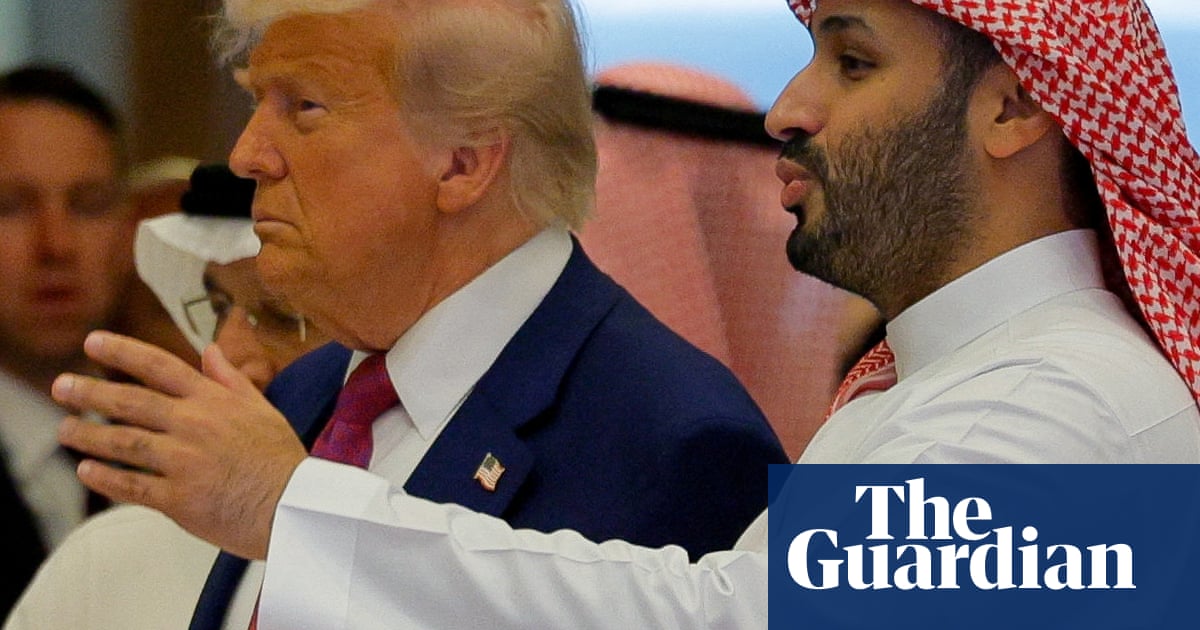Trump’s Tech Tour: A New Era of Middle Eastern Deals
On a recent whirlwind tour of the Middle East, former President Donald Trump unveiled a series of multibillion-dollar tech agreements with the leaders of Saudi Arabia, the United Arab Emirates (UAE), and Qatar. These deals not only encompass the sale of cutting-edge U.S. technology but also showcase a potent model of power and influence concentrated amongst a select few individuals, echoing the dynamics of the industry itself.
Major Announcements and Agreements
The announcements made during this tour were nothing short of monumental. One standout agreement established Abu Dhabi as the home of the largest artificial intelligence (AI) campus outside of the U.S. This ambitious initiative allows the UAE to import a staggering half a million Nvidia semiconductor chips, renowned as the most advanced for AI product development. Similarly, Saudi Arabia struck a deal to acquire hundreds of thousands of Nvidia Blackwell chips for Humain, an AI startup backed by its sovereign wealth fund.
The tech landscape didn’t stop there. Cisco revealed a partnership with a UAE AI firm aimed at bolstering the nation’s AI sector, while multiple Saudi firms committed to investing in U.S. technology and manufacturing. Other industry giants, like Amazon Web Services and Qualcomm, also jumped in, announcing ventures focused on cloud computing and cybersecurity, thus reshaping the technological collaborations between the U.S. and the Gulf states.
A Shift in U.S. Policy
These agreements carry significant weight, particularly given their stark contrast to the Biden administration’s approach. The current administration imposed stringent controls on the sale of cutting-edge technology, particularly to Middle Eastern nations due to their ties with China. In an unexpected reversal, Trump’s initiatives underscore a seismic shift in policy direction, as previously restricted companies like Nvidia now find themselves negotiating deals directly with Gulf nations.
The question looms large: will these Gulf states utilize the technology solely for their development, or could there be undisclosed arrangements involving China lurking beneath the surface? Such geopolitical complexities add layers of intrigue to these high-stakes agreements.
Trump as Broker-in-Chief
Trump characterized himself as the "broker-in-chief" during the tour, flanked by an impressive entourage of high-profile CEOs, including Nvidia’s Jensen Huang, OpenAI’s Sam Altman, and Elon Musk. This bring-together of tech titans and political figures not only emphasizes the weight of these partnerships but also speaks volumes about Trump’s strategy to leverage his relationships with key industry players.
These executives engaged in face-to-face negotiations with Gulf leaders, a move that signals a departure from traditional diplomatic talks. With their influence and resources, these CEOs stand to open new markets for their products, thus exporting the American model of technological dominance.
The Role of Elon Musk
One particularly noteworthy figure from the tour was Elon Musk. While the spotlight often shone on AI-centric leaders like Altman and Huang, Musk’s involvement highlighted his continued prominence in global affairs. Musk’s significance in this context transcends AI; it primarily hinges on his command of global internet connectivity through his satellite internet service, Starlink.
Musk inked a critical agreement that permits maritime and aviation use in Saudi Arabia, consolidating his role as a key player in the future of global communication infrastructure. Amidst the business discussions, he even showcased Tesla’s Optimus robots, blending entertainment with technology and further solidifying his unique status in the eyes of both leaders and the public.
The Financial Implications
The financial ramifications of these deals are vast, with Trump’s administration touting "historic investment commitments" reportedly totaling in the trillions from these oil-rich nations. This optimistic outlook, conveyed through multiple press releases, emphasized the mantra of "never tired of winning." However, the reality is complex, as these investments promise to enrich tech CEOs while simultaneously shaping the technology landscape in the Middle East.
The concentration of power among these tech leaders mirrors trends in the industry itself, where a handful of individuals wield immense influence over technological development and its ramifications on global politics. This tour not only promises substantial financial gains for companies involved but also potentially reshapes the socio-political landscape in the region.
A Broader Perspective on Influence
As the tech world continues to evolve at breakneck speed, the implications of these agreements extend beyond mere financial transactions. They signify a broader narrative about how technology can engender new forms of influence and authority in emerging markets.
With the backdrop of geopolitical tensions and shifting alliances, the stakes are high. The emergence of a tech-fueled power dynamic in the Middle East may not only redefine international relationships but could also influence regulatory frameworks, ethical considerations, and the global balance of power in technology.
These developments weave a compelling narrative of change, innovation, and the intricate dance of power among nations, industries, and the individuals who lead them.


